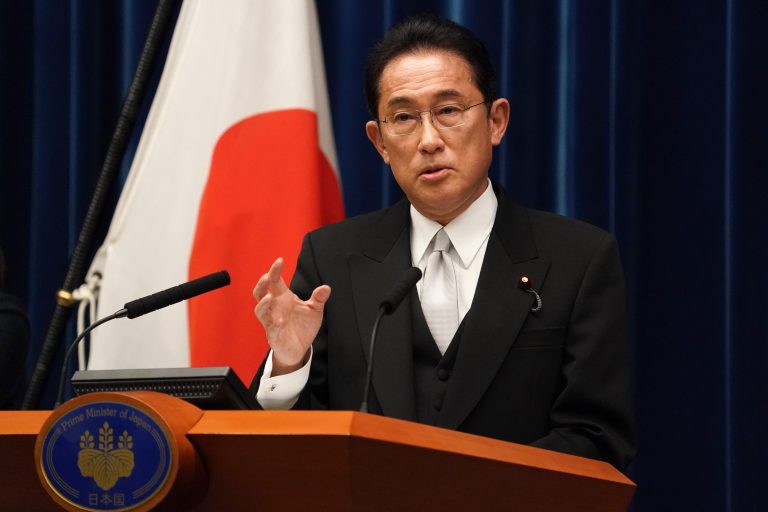The election for the president of the Liberal Democratic Party (LDP), the ruling party of Japan, was held on Sept. 29. The winner, Fumio Kishida, became Japan’s 100th prime minister, following the resignation of predecessor Yoshihide Suga.
In the first round of voting none of the four candidates received more than half of the votes, and the top and second candidates, Fumio Kishida, and Taro Kono competed in a second round of voting. Seiko Noda and Sanae Takaichi were both eliminated in the first round, each losing the chance to become the first female prime minister in Japanese history.
Kishida, 64, is only six years older than Taro Kono, and the two men are seen as representing stability and change respectively. Taro, who studied in the United States, speaks fluent English, and uses social media well with more than 2.3 million followers on Twitter.
He has enjoyed support by the LDP House of Representatives, which he has been elected to seven times and has consistently attracted younger voters. His platform promised reform and advocated for the abandonment of nuclear weapons and rejected the opposition to a female emperor.
In contrast, Fumio Kishida, who has a more conservative demeanor and has the support of more senior party members.
Success
You are now signed up for our newsletter
Success
Check your email to complete sign up
As the LDP currently holds the majority of seats in the Senate and the House of Representatives, Fumio’s ascension to president was all but guaranteed. Kishida will be the 27th president elected from the Liberal Democratic Party.
Kishida is considered to be pro-Taiwan. In a recent interview, he bluntly stated that managing issues around the Taiwan Strait, particularly in regards to mainland China, will be the prime minister’s first priority.
On Oct. 4, Taiwan President Tsai Ing-wen congratulated Kishida and his cabinet via Twitter. She expressed her hope to work with Kishida and to deepen friendly relations between Taiwan and Japan and to “continue to strengthen ties as fellow democratic countries.”
On Oct 6, Sanae Takaichi, the new chair of the Japanese ruling parties Policy Research Council endorsed Taiwan’s application to join the Comprehensive and Progressive Agreement for Trans-Pacific Partnership (CPTPP) stating in a meeting with party lawmakers, “I will support Taiwan’s efforts as a partner with shared values.”
Several Japanese officials have come forward welcoming Taipei’s bid to join the trade pact, previously known as the TPP, indicating a willingness, if not eagerness, to work with Taiwan.
Kishida was the first to say that after being elected prime minister of Japan, he would set up special officials for human rights and economic security to be in charge of Xinjiang and Hong Kong.
In addition, he said he would also pay attention to Xinjiang and Hong Kong and other human rights issues created by the Chinese Communist Party (CCP).
Moreover, he said he would protect Japan against China that has been known to exploit Japan’s science, technology and economy.
Todd Crawford contributed to this report.

















